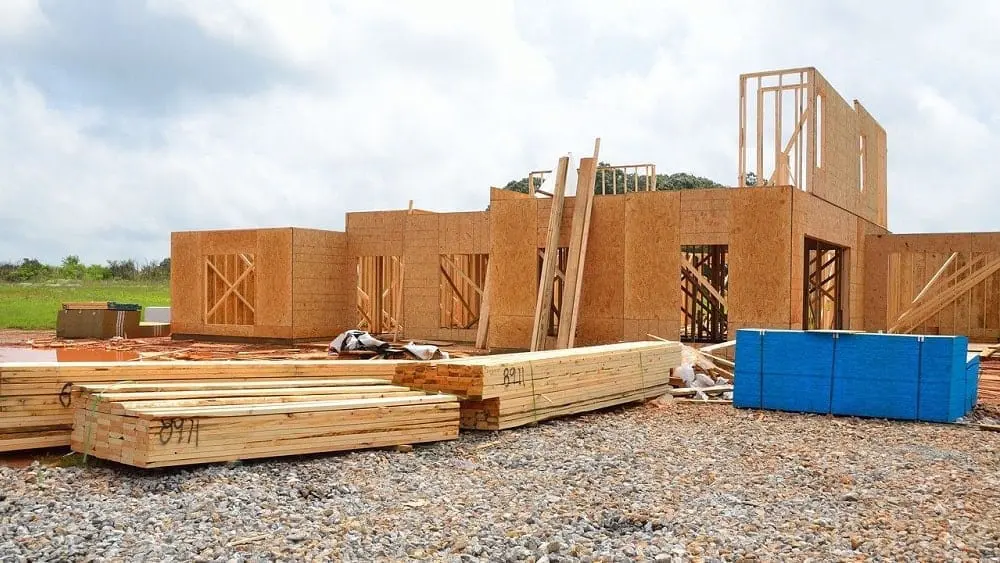
Being the very first buyer or two in a new community often comes with some significant price advantages. So does being the last one in a project that is at its end. However, there are disadvantages to being first or last as well.
Here’s what you should consider when deciding when to buy in a new home community:
Pricing & Market Changes
Builders often trim their asking prices to lift a new property out of the ground. Once they notch a few sales, they try to start raising their charges. They often have a schedule to keep increasing prices throughout the life of the project.
There is no rule of thumb about how low starting prices will be or how much higher they will rise once sales take off.
Years ago, when the housing market was flying high, the market was so hot in Chicago that Lexington Homes was able to jack up its prices by $70,000 in a single weekend. But that doesn’t happen anymore, says Lexington’s Jeff Benach.
Now it depends on the market and the competition in that market.
“We haven’t been able to raise our prices all that much since before the recession,” says Benach.
There isn’t any modus operandi builders tend to follow for how low prices might slip when a project is nearing completion, either. Every builder is different. If sales are strong, price cuts may not be necessary at all to move the last few houses.
“Pricing is always a very sensitive thing,” Benach confides. “If you come in too high, you can get slaughtered. And if you back off, it sends out all kinds of negative signals.”
At the beginning, though, “it is generally less expensive” to buy a sparkling new place in an exciting new subdivision in an up-and-coming new neighborhood or community, says Robert Turner, president of Habersham Land Co., which is developing Habersham, an award-winning coastal town in Beaufort, S.C. Builders usually “discount the homes early to generate interest and accelerate absorption.”
Early Buyers Pros & Cons
There are drawbacks to being first. One is you might not be able to get the best location within the new project. Sometimes, says Benach, builders do not release the best lots until the property is winding down, “just in case there’s a sales slowdown.”
There is no rule of thumb about lots, either. Some builders offer the best sites upfront, so if you wait too long, the early birds may have already gobbled them up.
Another issue early buyers could face is that there may be some design kinks in a new model which haven’t been worked out yet. Again, each builder operates differently, but when new designs are introduced in a new community, there could be a few flaws that architects either didn’t or couldn’t see on paper.
Perhaps a cabinet door in the kitchen hits a side wall when it is opened, for example, or the refrigerator door can’t be opened wide enough for the shelves to be adjusted or removed. These kinds of slip-ups will be corrected as the house is replicated throughout the project, but if you buy the first one, you probably are going to have to live with them.
“That’s why builders tend to repeat their products as much as they can,” both within the project and from project to project, Benach comments. “They’re tried and tested.”
But an even more important question early buyers need to consider is whether the builder or developer will be able to deliver what they promise.
“Will the integrity of the development and home construction be sustained?” asks Turner in South Carolina. “Will the vision be sustained? These are all inherent risks of buying early.”
Once the property is up and running with sales running on overdrive and the promised amenities added, the answer to those questions will be self-evident. An early buyer will have to take the builder at his word.
Some developers put in the big amenities first. The clubhouse, for instance, the golf course, or the shopping and dining district if the property is large enough. Individual builders sometimes don’t have the wherewithal to do that until later in the job. Consequently, you might be taking a big chance.
If those and other amenities are in place already, though, an early buyer will have the advantage of being able to dominate them, Turner points out. “The pool is never crowded, no waiting for the tennis courts, Johnny can ride his bike anywhere, kids can build their makeshift forts on empty lots.”
At the same time, however, you’ll have to put up with construction traffic rumbling down your street and the hammer-and-saw noise starting early in the morning and running until sundown. So the choice is listening to the construction din or the birds merrily chirping away.
Late Buyer Pros & Cons
“The advantage of buying later allows the purchaser to move into a secure physical environment,” Turner points out. “The roads are complete, homes are built, the sound of construction is minimal, and the vision is complete.”
Buying later in a community often makes it more difficult to meet your extended new neighbors, says Turner:
“The adage ‘the neighborhood has grown so large I just don’t know anyone anymore’ seems to be a common refrain as a neighborhood matures. People who are the new kids on the block seem to find it more difficult to meet existing residents who have already formed a bond.”
On the other hand, the developer points out, first buyers “generally find it easier to meet their neighbors” and “seem to form a strong bond.”
Something else to think about: When you are an early buyer, subcontractors are on the job almost daily, so they can swing over to your place to make any “punch list” fixes that may be necessary. These are the items you discovered at your final walkthrough prior to closing, but not worth waiting to move in until they are repaired. A scratched bathroom tub, for example, or a broken floor tile. But the end of the project, the subs have moved on and getting them back to fix cosmetic items may prove to be difficult.
Also, while that neighborly bond may be somewhat difficult to create when you are buying one of the final houses, builders often offer enticing prices to end a project and move on to the next one. “It is often too costly for builders to continue to maintain sales office on site for a few straggling homes,” says Benach at Lexington Homes.
Again, no rules of thumb concerning pricing. Every builder operates differently, and if sales are strong, they may not have to drop prices at all. If they do offer discounts, they probably won’t be anything near their starting prices. If they go too low, Benach points out, they risk angering previous buyers.
Still, if you see a sign glaring “Close Out” — or such as one spotted a few years ago in Southern Maryland saying “Grand Ending” — you can be pretty sure the builder is willing to dicker, and not just on prices, either. Options and upgrades also can be on the table. You might even be able to snag a choice lot.
You can’t assume any of this, though. Benach likens trying to pick when to buy to trying to decide when get in and get out of the stock; even the pros can’t do that with any degree of certainty. His advice: “If you find a house you love within a community you like, don’t wait. Buy it!”

Lew Sichelman is a nationally syndicated housing and real estate columnist. He has covered the real estate beat for more than 50 years.
 Challenges 55+ Homebuyers Face In Outfitting Their New Homes
Challenges 55+ Homebuyers Face In Outfitting Their New Homes
Tricia
Is it wise to buy land in a development community as an investment? If we were to decide to not build and later decided to
Sell the land would it likely be profitable?
Jamie Garcia
Hi Tricia,
You’ll likely be hard-pressed to find a community that will let you buy a lot on its own (without agreeing to build a home on it). Those that will allow you to buy just a lot do typically allow you to leave it empty as long as you want. As to whether it will be profitable if you decide to buy a lot, keep it empty, and sell later – that comes down to several factors that are impossible to determine ahead of time.